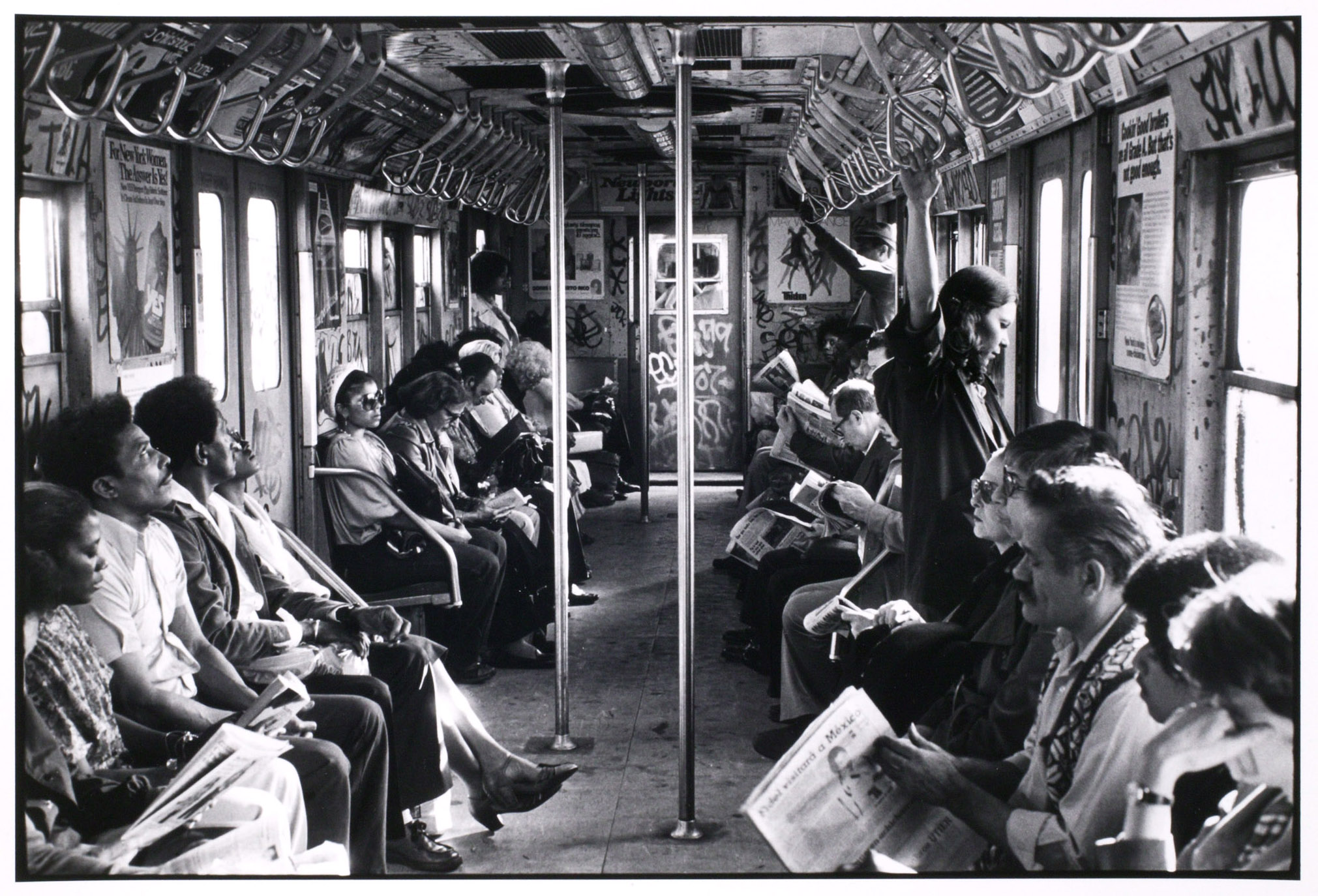
Recently elected TWU Local 100 President John Samuelsen poses outside of MTAHQ on Wednesday. (Photo via the Daily News)
As part of the MTA’s planned service cuts, the authority is trying to spread the pain around. We know that Transit is trying to minimize the disruptive nature of their necessary cuts. We know that the MTA’s administration budget will be reduced by 10 percent and that everyone will have to take a paycut. We also know that the agency is going to try to eliminate 700 union jobs. The TWU will not, according to new president John Samuelsen, go down without a fight.
Speaking in front of MTA Headquarters on Wednesday shortly before the authority’s board met to discuss the service cuts, Samuelsen lobbed some charges at the executives. “This document was obviously written by accountants, bean counters, people who obviously don’t ride our system and who don’t understand that these cuts are negatively impacting hundreds of thousands of New York’s working families and their children,” Samuelsen said. “They’re clueless.”
Samuelsen, according to Pete Donohue, also called upon the MTA to eschew their countdown clock program in favor of covering operating deficits. It is this attitude that will result in a transit policy and a transit system stuck in neutral, and as we know, the agency as no plans right now to shift any capital money to cover its operating deficit.
At a time when the MTA is suffering in the eyes of a skeptical public, his rhetoric rings a certain bell. He knows that the MTA’s proposed service cuts were written by people very much in tune with the system. That’s why the proposal is designed to limit the number of passengers and riders it impacts. He knows that MTA officials aren’t clueless. But he also knows that he’s going to have to fight for the jobs. Right now, despite the fact that wage increases for TWU workers is contributing to the MTA’s deficit gap, Samuelsen is clearly winning the war of the words.
On a more practical level, though, Samuelsen and new MTA CEO and Chair Jay Walder are going to try to work together to address the MTA’s deficit. City Hall News’ Chris Bragg profiled Samuelsen yesterday, and his piece adds a level of complexity missing in the Daily News’ coverage of the TWU head’s public comments.
Samuelsen and Walder recently met for the first time, and the two have pledged, according to Bragg, to work together. Walder — known for being hard on labor during his days in London — had a more optimistic assessment of the potential relationship between the two men. “He has pledged to [work together], and I have pledged to do so,” he said. “But we’re both new to our jobs, so we’re finding our way.” But Samuelsen countered, “We have diametrically opposite positions on a whole array of issues. It’s not going to be personally hostile. But we’re not going to just roll over, either.”
Samuelsen is taking over the TWU after a few tumultuous years of labor relations with the MTA. Roger Toussaint’s decision to strike in 2005 cost the union dearly, and Samuelsen vows to avoid making the same mistakes of capitulation. Still, some observers think the two new heads will see a thaw in their early discourse. “Roger Toussaint came into office with a reputation as a firebrand kind of guy too,” Bill Henderson, executive director of the Permanent Citizens Advisory Committee to the MTA, said to Bragg. “Eventually, the relationship changed.”
Right now, Samuelsen’s job is to save 700 of the 37,000 workers over whom he is in charge from getting the axe. He’ll try everything in his power to save 1.8 percent of his workforce from the unemployment lines because he knows what giving into the MTA will mean. As the authority fights for its money, the war — one that will probably end on a reconciliatory note — is just getting started.

 Most New Yorkers wouldn’t recognize Kirsten Gillibrand, the state’s junior senator, if they ran into her on the street. An upstate politician who replaced Hillary Clinton one year ago, Gillibrand is suffering from
Most New Yorkers wouldn’t recognize Kirsten Gillibrand, the state’s junior senator, if they ran into her on the street. An upstate politician who replaced Hillary Clinton one year ago, Gillibrand is suffering from  As part of his ongoing series of progress reports into the MTA’s attempts at beefing up its security, New York State Comptroller Thomas DiNapoli has released his most scathing indictment of the transit agency so far. A new report, released yesterday, says that the MTA is years behind implementing its planned post-9/11 security upgrades and may very well run out of money before completing the project.
As part of his ongoing series of progress reports into the MTA’s attempts at beefing up its security, New York State Comptroller Thomas DiNapoli has released his most scathing indictment of the transit agency so far. A new report, released yesterday, says that the MTA is years behind implementing its planned post-9/11 security upgrades and may very well run out of money before completing the project.

 As the MTA’s new leadership acclimates to a bad economy and the rigors of heading a much-beleaguered organization, the old bosses are settling into new transit-oriented gigs.
As the MTA’s new leadership acclimates to a bad economy and the rigors of heading a much-beleaguered organization, the old bosses are settling into new transit-oriented gigs. 
